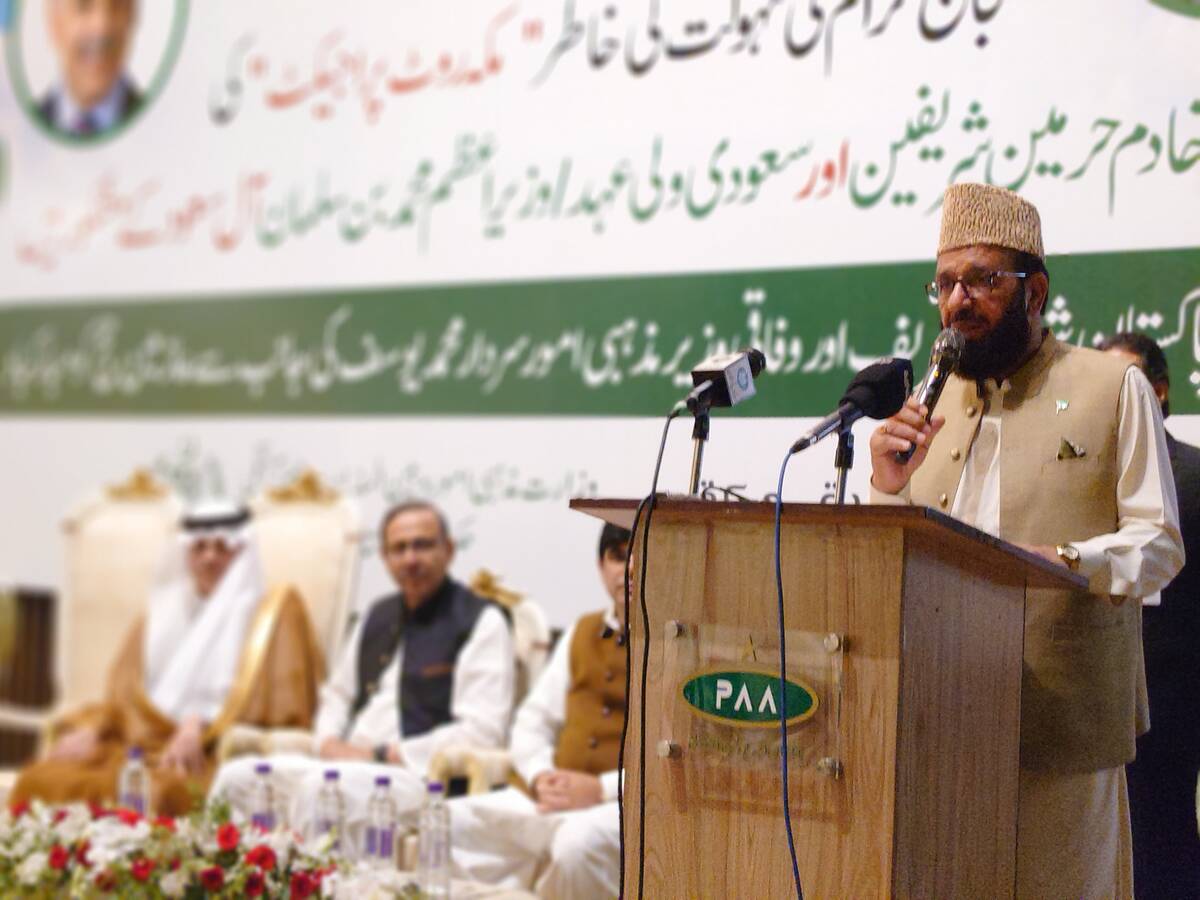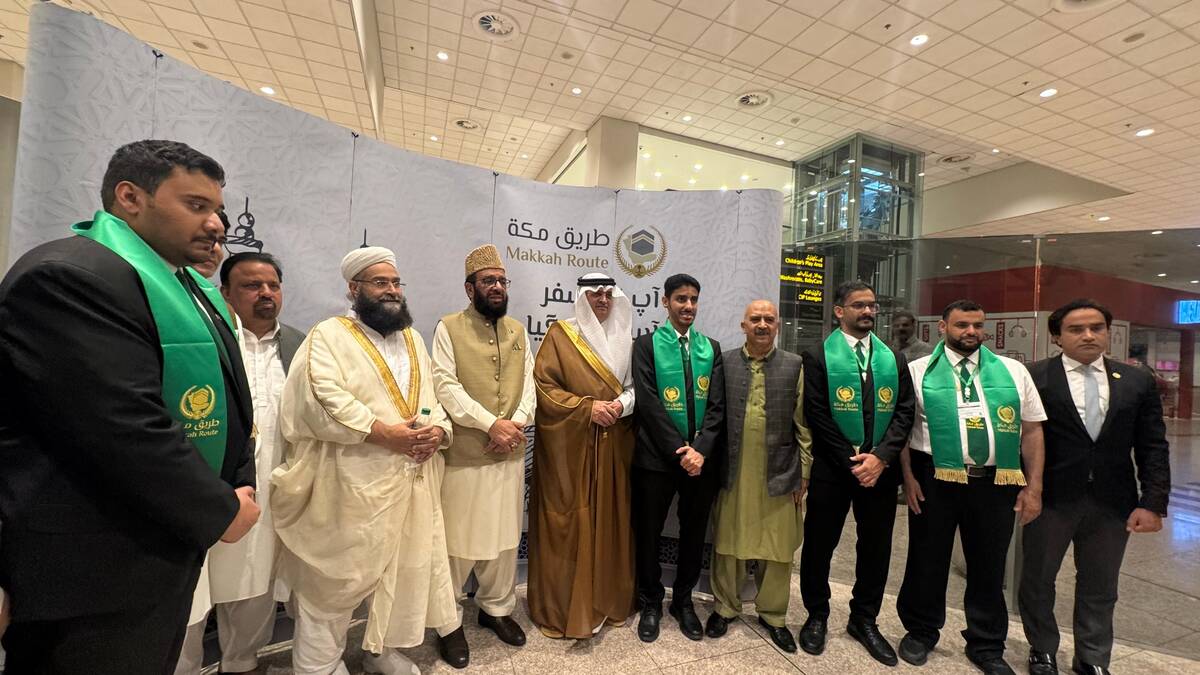ISLAMABAD: The Pakistan government plans to allocate some $69 million to acquire 679 flood telemetry stations from the international market and install them on rivers and streams for precise flood forecasts and early warning to protect vulnerable communities and regions, said a senior official in an exclusive interview with Arab News.
The federal flood commission prepared the proposal just weeks after much of the country was inundated in the wake of the torrential monsoon rains that killed over 1,700 people including 639 children since mid-June.
According to the official data, the devastating floods affected over 33 million people in 84 calamity-hit districts and killing over one million livestock across the country.
Pakistan has been ranked among the top ten countries adversely affected by climate change, though it contributes less than one percent to global carbon emissions.
“We have made a first ever national master plan on flood telemetry and it is composed of 679 stations,” Ahmed Kamal, chairman of the federal flood commission, told Arab News. “These stations are going to be placed on even the smallest of rivers and streams [to get early warning on floods].”
Kamal said the country’s Balochistan province along with parts of Sindh, Khyber Pakhtunkhwa and Gilgit-Baltistan were “devoid of the flood telemetry system” which relies on automated recording and transmission technology which makes it easy to remotely monitor sources of flood risk.
He continued the system would help get a “precise and much-improved” flood forecast to protect communities, adding it was going to cost around Rs15 billion ($69 million) and could be installed within a year.
Currently, the country has only around 70 early warning systems, a majority of which are in the northern areas.
“I have already asked for the instructions to provinces,” Kamal said. “They should first install this system on all those points which got affected this year.”
He informed that various sites had already been identified on the basis of ground survey, adding that foreign donors, including the Asian Development Bank and World Bank, could help implement the project.
At present, Pakistan has only one integrated flood forecasting system in Lahore and the commission has proposed to set up similar systems in other parts of the country for timely and precise flood forecast.
Kamal said the country had prepared and effectively implemented at least three national flood protection plans from 1978 to 1987, 1988 to 1997 and 1998 to 2008. The fourth national plan was prepared, he continued, though it was not implemented due to “some sort of a drought-like situation” in the country.
After the 2010 deluge, Pakistan realized the importance of developing a flood protection plan which was prepared in 2015 with the help of the Netherlands.
The government also approved Rs332 billion ($1.5 billion) to implement it in May 2017. However, it could not happen due to the financial constraints.
“We were asked to rationalize [the plan], so we rationalized it and brought it down by only including the priority structures … with 95.98 [billion rupees or $439 million] as the new cost,” he said.
In October 2020, the revised plan was taken to the planning commission for approval, he informed. However, it was said the new scheme would only be endorsed if the required funding could be generated from foreign donors.
The government, subsequently, reached out to these international organizations but could not secure the required amount.
“By the time we were discussing this situation, the 2022 floods arrived,” Kamal said. “I think that thereafter there had been a much greater realization that perhaps we have not done justice with this very important sector.”
He added the commission would submit a fresh flood protection plan to the federal government by the end of the month.
“We are very much hopeful that this time it is going to be approved and funding shall be made available,” he said.
Asked if the flood protection plan could have helped avoid the recent flash floods and all the devastation if it were in place, the commission chairman said: “I should say that may be not hundred percent but to a certain good extent.”
“Look, there has been some damages to the flood infrastructure, the irrigation network, to small dams in the province of Balochistan, and all that could have been saved,” he continued. “That could have been averted.”
Kamal emphasized all public departments, including the federal flood commission, should get sufficient technical and human resource to deal with such challenges.
The proposed flood protection plan calls for the overhauling of river drainage system in Sindh, urban flood management and early warning system for major cities like Lahore, Karachi and Hyderabad.
It also mentions rainwater harvesting, water diversion structures to minimize damage from hill torrents and establishment of floodwater carrying channels along with the required telemetry system and vehicle-mounted weather radars.
Kamal said Pakistan did not use about 28 million acre-feet of water annually since the country’s total storage capacity was only 13.461 million acre-feet.
“There are more storages and dam projects in the pipeline,” he said, adding that the planning for new reservoirs for up to 2050 was in place which would have “the added advantage of providing us cheap hydropower.”
























